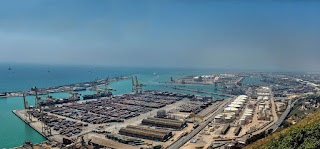Risks Associated With Ship Demolition
What is ship demolition?
Ship demolition is the procedure that involves dismantling of a vessel that is no longer into use of the ship owners. Most often times, oil tankers, container ships and bulk carriers retire before their actual life comes to an end. These are then handed over to the ship breakers who then dismantle the ships on the seashore or ship breaking yards. It is a tedious and time consuming process which involves removal of the gear and equipment, cut down on the structure and separate all the recyclable materials.
In India, almost 80% of the total vessels are dismantled and demolished by the ship breakers. They make up almost 70% to 80% of the recycling market for ocean vessels across the world. Afterwards, the recycled scrap is milled and re-rolled for use in the construction projects around the world. The ship breakers recycle more than the ship’s hull. All of the electrical components, generators, boilers, furniture, refrigerators are sold off in the second hand market.
Risks associated with Ship Breaking
If we talk about the ship breaking industry, then it is located at a safer stretch of the seashore. Most of the workers working over there directly involve themselves in the process, but thousands of them are also involved in the business downstream. Unfortunately, because of the fact that ship breakers do not have good education or we can say that they lack in training, they work without wearing protective gear. It has been seen that they work without respirators, hard hats and protective clothing.
The risks that are associated with the ship demolition are tremendous and also because workers work without protective gear is one important reason behind maritime accidents. During the process of ship breaking, the workers become exposed to the direct hazards and also to the environmental hazards. You must be shocked after reading that almost 90% of the maritime accidents among the ship breakers involve:
· Confined spaces
· Falls
· Fires or Explosions
· Asphyxiation
· Crush injuries
· Being struck by falling objects
· Toxic chemical exposure
· Asbestos exposure
The above mentioned is only just a small list of the risks involved. There are a number of environmental risks that are often ignored like the tools, noise and temperature. Furthermore, the risks that are associated with the ship breakers doesn’t end here. The ship breaking process has a negative effect on the local as well as the environment. It has been seen that solid waste, oil and grease are often dumped into the water bodies. The fuel remnants and oil are found in water bodies near the ship recycling yards and they even cause harm to the marine creatures.
You must be aware of the fact that fumes and airborne hazards are considered toxic to the local people living over there. Some of the airborne hazards like asbestos fibres and fumes leech also put the local residents at the risk of death. The outcome of this is that people inhale pollution, ingest the polluted water, eat the contaminated fish and also eat the veggies that are grown in the toxic soil.



Comments
Post a Comment